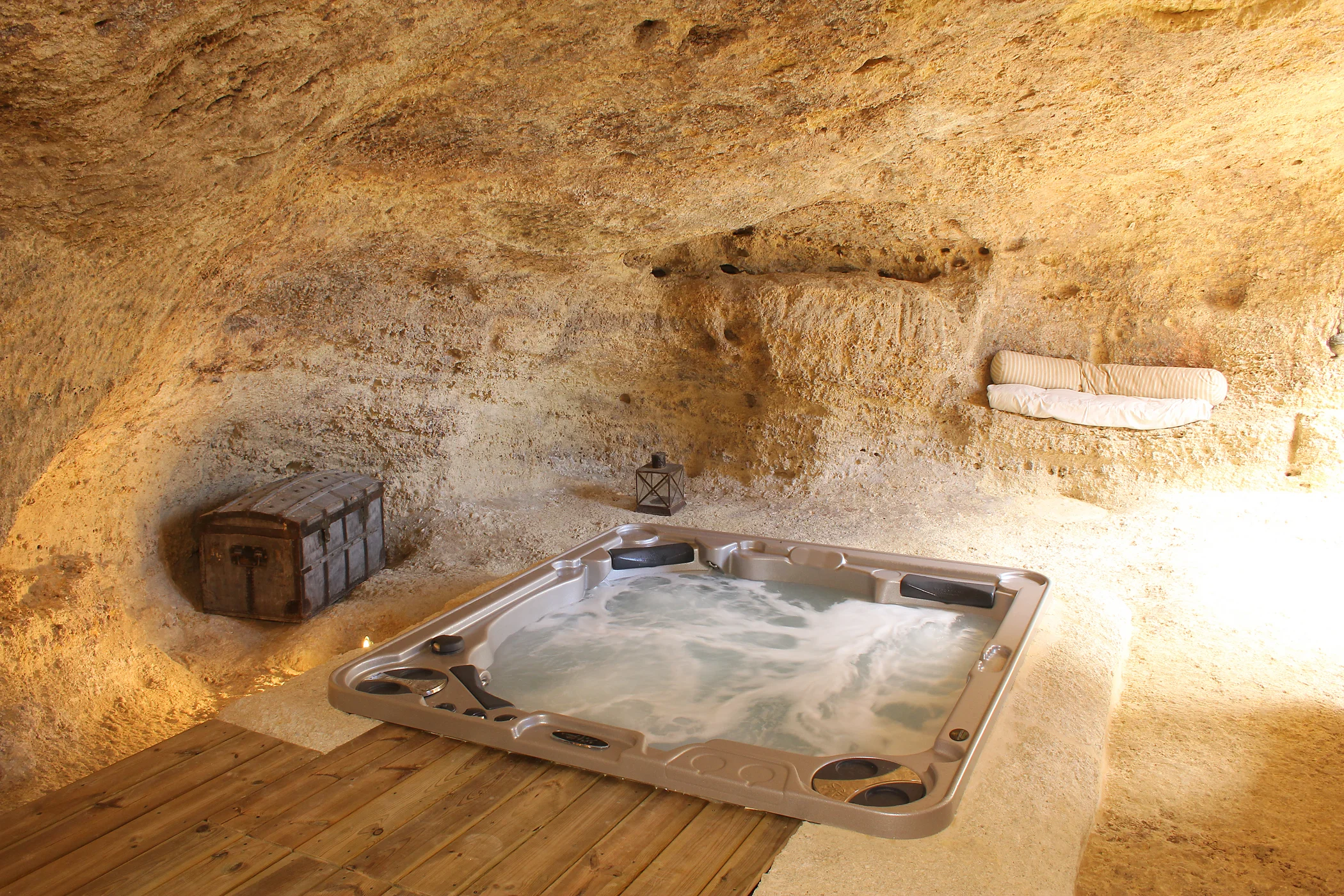Can You Put a Hot Tub in Your Basement?

You know what your basement needs: an indoor hot tub.
Every basement needs a hot tub, after all. But can every basement actually have a hot tub? That is a tougher question.
The answer is in most cases, yes. For the most part, basements are an ideal location, especially as the concrete floors typically can properly support the weight of the hot tub. We have installed many hot tubs inside homes and in basements at Hydropool in the 40 years we have been in business.
There are, however, several factors which need to be considered before getting a hot tub into your basement. They include:
- Why would you want a hot tub in your basement?
- Does a hot tub need to be ventilated in a basement?
- Does a hot tub require drainage in your basement?
- Can you get a hot tub into your basement?
This isn’t the most common question we are asked at Hydropool, but it does come up. And we want you to know what hurdles are involved, and how to leap over them, if you’re looking for a basement hot tub.
Why Would You Want a Hot Tub in Your Basement?
The most obvious answer is access. Whether it is warm or cold outside, having a hot tub available to you whenever you want it inside is a temptation that is hard to ignore. You don’t need to worry about running back and forth from your backyard into your house to be warm: You’ll be warm the entire time.
Does a Hot Tub Require Permits to be Installed in a Basement?
This will depend on the municipality you live in. Be sure to check what the requirements are in your area.
How Much Ventilation Does a Hot Tub Need in a Basement?
This is one of the hurdles to overcome. It is recommended to install an exhaust fan over top of the hot tub which will vent the air outside the room, removing the condensation. Mechanical ventilation systems are also recommended as they will continuously vent fresh air into the room while exchanging it with the air indoors.
A hot tub will produce increased humidity and to avoid condensation, so it is essential to have proper ventilation in your basement. This can also depend on the season. In the winter, a furnace can assist in drying the humid air and in warmer months, a central air system will dehumidify the air (you can also purchase a separate dehumidifier, which will help). Although these are all helpful, these options will not be able to handle the condensation concern on their own, which is why you will need an exhaust fan.
The combination of high heat and evaporating water produced by a hot tub increases the humidity in your basement air. When the moist air mixes with cooler air in the room, this is what creates condensation. If condensation is allowed to build up on windows, heating ducts, walls, outlets, and fixtures it will facilitate mold growth and can cause other damage such as rotting. You don’t want to have to deal with that.
This is why ventilation matters so much. You need to ensure that the air is being continually replaced.
Will a Hot Tub Require Drainage in a Basement?
How you intend to drain your hot tub will be a key issue if it’s inside the house. You will want to check with your local municipality that you can dispose of your hot tub water through an internal drain in your house before installing the hot tub.
Water can be tricky in other ways. Your basement floors can become a safety hazard if water splashes onto them from the hot tub. When planning your installation, make sure to surround your hot tub with non-slip flooring materials, such as rubber mats, to prevent slips and falls.
Water that is left sitting on the floor can eventually cause structural damage. Ensure that you have proper drainage and moisture-resistant flooring around the base of the hot tub.
Can You Put a Hot Tub in Your Basement?
The last element you need to overcome is the “how.” Can you fit a hot tub in your basement? Some hot tubs are more shallow than others (Hydropool’s 379G, for example is 30” deep as opposed to 36” or more). But figure out how to access the basement area, especially if it is already built, is a key component of any basement installation.
If you have decided to install your hot tub in your basement, it is important to hire a professional contractor or architect that is experienced with hot tub installations. This will ensure that the best location is identified for where to place your hot tub, that you have the proper ventilation and they may recommend other materials such as moisture resistant insulation to protect your home.
The quickest way to find a professional who can help you is through a local hot tub retailer. Chances are they will have done basement installations previously, and they can hook you up with the people that you need to support you. Reach out to the local dealer nearest you here.
Installing a hot tub in your home is a wonderful investment for you and your family. From improved health and wellness to spending quality time together, not to mention the amazing therapeutic massage and relaxation a hot tub provides, it will be enjoyed for many years to come. By taking the time to make sure that your basement has the proper factors for installation, you can rest assured that your home will be protected as you enjoy your new hot tub.






